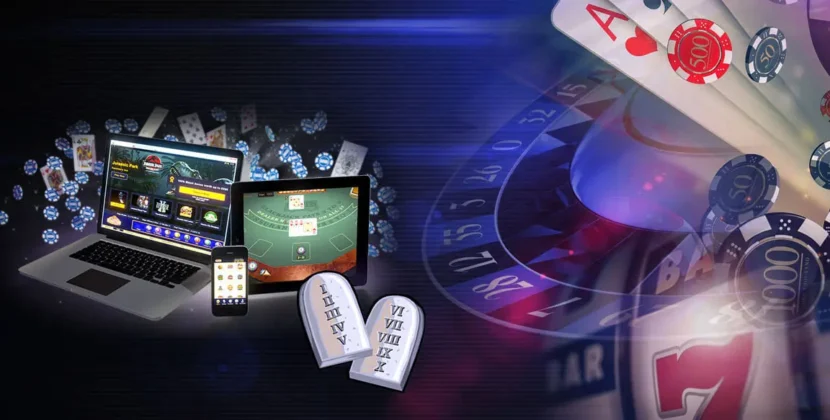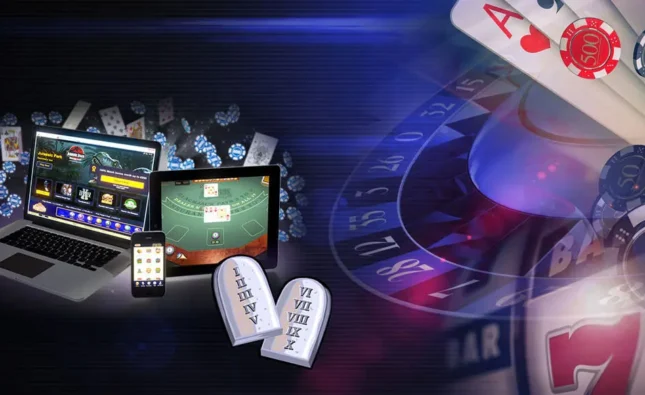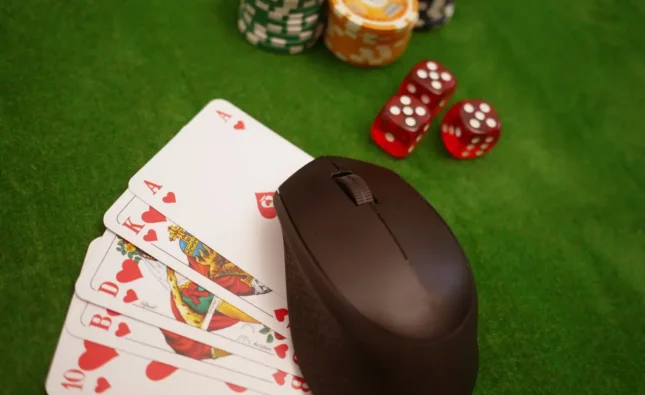
Share:
In the world of poker, success isn’t solely determined by the cards you hold or your grasp of strategy; it’s largely influenced by your mindset. While many players focus on learning the odds and mastering various strategies, the most successful players know that the psychological elements of the game are equally important, if not more so. Developing a strong poker mindset involves understanding how to handle emotions, adapt to variance, and make calculated decisions. This article explores essential strategies for mastering your poker mindset, allowing you to excel in both casual and competitive settings.
1. Embracing Variance
Understanding Variance
Variance is a term that describes the inherent fluctuations in outcomes during poker sessions. It’s the reason why even the best players can experience long stretches of losses. Accepting variance is crucial for maintaining a healthy mindset. Good players recognize that poker is a game of probabilities, and short-term results can often deviate significantly from long-term expectations.
Strategies for Coping with Variance
- Focus on Long-Term Goals: Instead of obsessing over individual sessions or results, set long-term goals based on your overall performance. Keeping track of your win rate and ROI (return on investment) will help you stay grounded.
- Set Realistic Expectations: Understand that even the best players will face downswings. Setting realistic expectations can help you maintain perspective when things aren’t going your way.
- Manage Your Emotions: During periods of loss, it’s easy to feel frustration or despair. Practicing mindfulness techniques can help you stay calm and centered, enabling you to make better decisions rather than acting on impulse.
2. The Power of Patience
Why Patience Matters
In poker, patience is a virtue. Many players feel the urge to play every hand or force action, often leading to costly mistakes. A patient player is more likely to wait for the right moment to make a significant move, whether
that means folding a weak hand or capitalizing on an opponent’s blunder.Strategies for Cultivating Patience
- Know When to Fold: Understanding the value of folding is key. If you’re holding a mediocre hand, don’t hesitate to let it go. The ability to fold and wait for a better opportunity is what separates good players from great ones.
- Take Breaks: If you find yourself feeling restless or bored, take a break. Stepping away from the table allows you to recharge and return with a clearer mind.
- Practice Mindfulness: Engaging in mindfulness exercises can improve your ability to remain patient at the table. Techniques such as deep breathing or meditation can help you stay focused on the present moment.
3. Developing Resilience
What is Resilience in Poker?
Resilience refers to your ability to recover from setbacks and maintain a positive attitude. In poker, resilience is essential for overcoming bad beats, mistakes, and the emotional rollercoaster that comes with the game.
Strategies to Build Resilience
- Learn from Losses: Instead of wallowing in self-pity after a loss, take the time to analyze what went wrong. Did you make a strategic error? Were you overly emotional? Understanding your mistakes will help you improve and adapt for future sessions.
- Stay Positive: Maintaining a positive outlook can help you bounce back from losses. Surround yourself with supportive friends or fellow players who can offer encouragement during tough times.
- Set Small, Achievable Goals: Rather than focusing solely on winning big, set small, achievable goals for each session. This could involve improving your decision-making process or sticking to a predetermined bankroll management strategy. Achieving these smaller goals can help build your confidence and resilience.
4. Staying Focused
The Importance of Concentration
Poker requires intense focus and concentration. A moment of distraction can lead to costly mistakes, and maintaining focus is crucial for making informed decisions. Good players are attentive to their surroundings, aware of their opponents’ actions, and cognizant of the betting patterns at the table.
Strategies for Enhancing Focus
- Minimize Distractions: Create a conducive environment for playing. Whether online or at a physical table, eliminate distractions such as noise, phones, or anything else that might draw your attention away from the game.
- Practice Active Observation: Pay close attention to your opponents’ behavior and betting patterns. By staying engaged with the game, you’ll improve your ability to make accurate reads and decisions.
- Utilize Breaks Wisely: Taking breaks is not only for recovering from fatigue but also an opportunity to refocus. Use this time to clear your mind and reassess your strategy for the next round of play.
5. Maintaining Emotional Control
Understanding Emotional Influences
Emotional control is vital in poker. The game’s high stakes can provoke strong feelings such as excitement, fear, or anger, which can cloud your judgment. Mastering your emotions can help you make better decisions and avoid tilt—a state of emotional frustration that often leads to reckless play.
Strategies for Emotional Control
- Recognize Your Emotions: Be aware of your emotional state at the table. If you feel frustration or anger rising, take a moment to breathe and reassess before continuing to play.
- Establish a Pre-Game Routine: Creating a routine before you start playing can help set a positive mindset. This could include visualization techniques, affirmations, or even a few minutes of meditation to prepare your mind for the challenges ahead.
- Learn to Walk Away: If you find yourself on tilt or emotionally overwhelmed, know when to step away. Taking a break or quitting for the day can prevent you from making costly mistakes.
6. Building a Strong Support Network
The Role of Community in Poker
Having a support network can significantly enhance your poker experience. Whether it’s fellow players, friends, or coaches, connecting with others who share your passion can provide valuable insights and emotional support.
Strategies for Building Your Network
- Join Poker Communities: Participate in online forums, social media groups, or local poker clubs. Engaging with others can expose you to new strategies, advice, and encouragement.
- Seek Feedback: Discussing hands and strategies with others can offer different perspectives and insights. Be open to constructive criticism and use it to improve your game.
- Share Your Journey: Sharing your poker experiences, both good and bad, can foster connections with others. Engaging in discussions about your triumphs and struggles can provide valuable support and motivation.
Conclusion
Mastering the poker mindset is an essential aspect of becoming a successful player. By embracing variance, cultivating patience, developing resilience, enhancing focus, maintaining emotional control, and building a strong support network, you can elevate your game to new heights. Remember, poker is not just about the cards you play but also the mindset you bring to the table. With dedication and practice, you can transform your approach to poker and achieve long-term success.
By honing these psychological strategies, you’ll not only improve your performance at the tables but also enjoy the game on a deeper level. So, as you prepare for your next session, take a moment to reflect on your mindset. Focus on the journey of self-improvement, and soon, the results will follow.

















